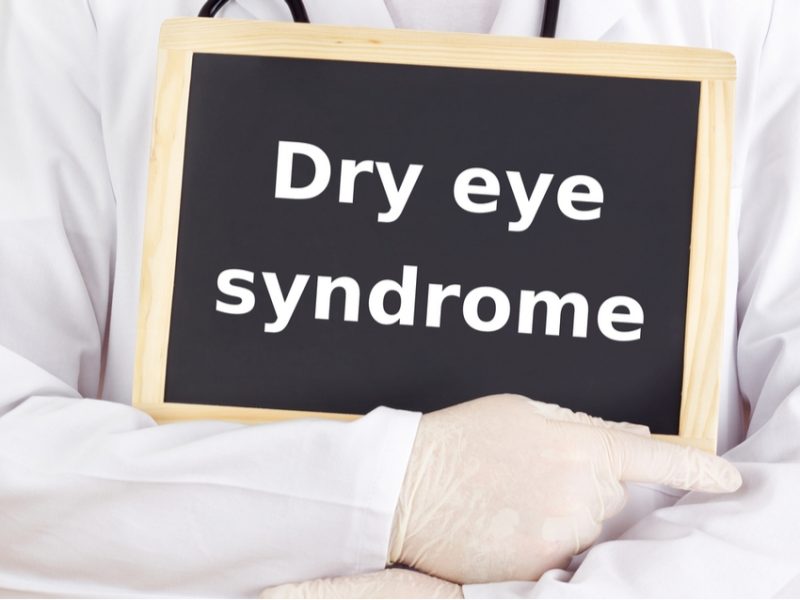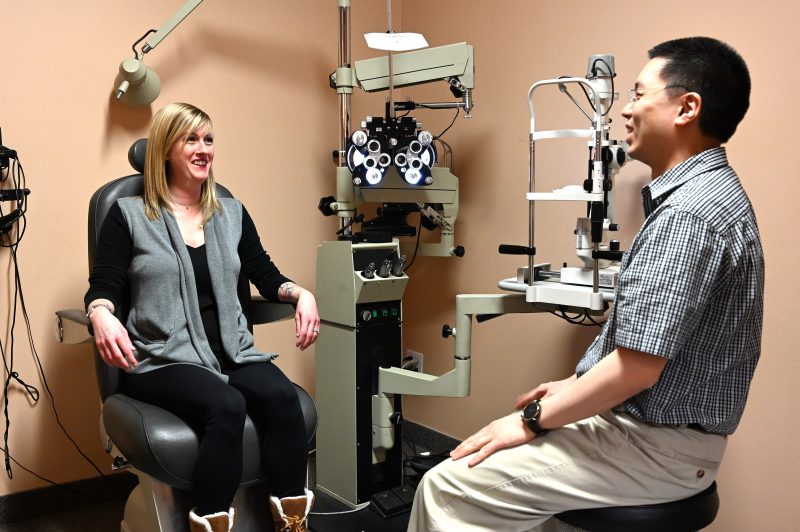Dry eyes in winter: treatment & avoidance
Itchy, sore eyes and blurred vision are symptoms of a condition that many people experience – dry eyes. This condition is often ignored because people assume there’s nothing that can be done for it, or it’s not serious enough to bother seeing an optometrist for. In fact, there are several ways to combat dry eyes, but first, you need to know the cause. At Dr. Coward and Associates we provide extensive dry eye testing, education and treatment options.

Symptoms of dry eyes
Not all symptoms of dry eyes are obvious. Contrary to what you might expect, some people experience watery, teary eyes if they are producing poor quality tears that don’t moisten the eyes effectively. Other common symptoms include feeling like there’s something in your eye, or a gritty, even burning sensation.
What causes dry eyes?
There are a number of things that can cause dry eyes. Environment, age and medications can all be to blame. A lot of people find they get dry eyes in winter – when you’re outside, the cold wind can dry out your eyes quickly and when you’re indoors, the air is often dry due to central heating.

Dry eyes are inevitably another aspect of old age, however it can also be brought on by hormones at a younger age. As well certain medical conditions and medications can produce dry eyes as a side effect.
How to treat dry eyes
As with many conditions, your dry eye treatment will depend on the cause to a certain extent. If it’s environmental, it may be easier to treat. You can wear eye protection in the form of wraparound sunglasses if you’re spending a lot of time outside during the day, or if it’s the dry air indoors that’s the problem, a simple humidifier can help significantly by adding moisture to the air.
Changes to your diet may offer some relief too – foods that contain vitamin A, such as carrots, broccoli and liver, are important for eye health. Omega-3 fatty acids are also good to include in your diet, from fish oils or flaxseed oil.

One cause of dry eyes, that is easy to rectify, is a lack of blinking. The fact is that when you look at a screen for any length of time, you tend to blink less often. As many of us now spend several hours each day staring at screens, this has become an even more common problem. Following the 20-20-20 rule can make a big difference – every 20 minutes, take a 20-second break from the screen and focus at least 20 feet into the distance.
Visit our Optometrists in Ontario at Dr. Coward and Associates

If you’re finding these simple remedies aren’t helping, or you’re concerned for any reason, the best idea is to seek advice from one of our expert optometrists at Dr. Coward and Associates. You can contact us at our eye clinics in Brighton, Trenton or Belleville to discuss your concerns or book a consultation.

